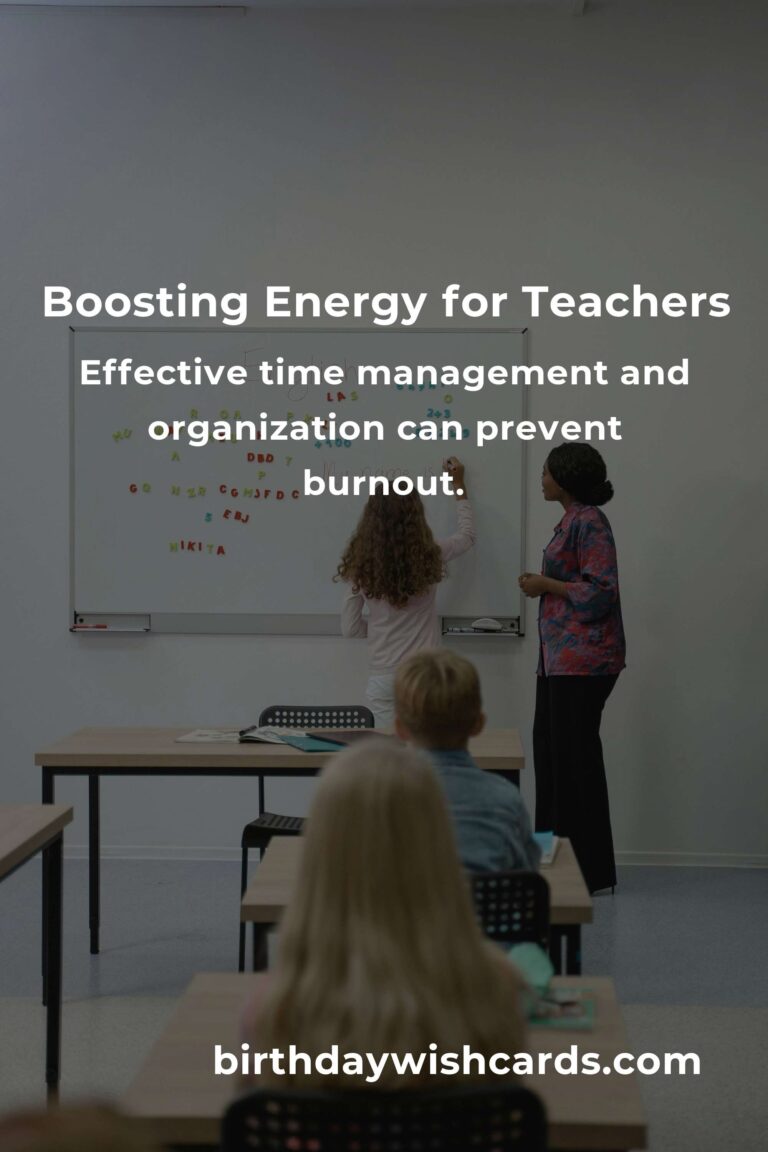
Teaching is an incredibly rewarding profession, but it can also be physically and mentally demanding. Teachers often face long hours, packed schedules, and the challenge of managing a dynamic classroom environment. It’s no wonder that many educators find themselves feeling drained and fatigued. Fortunately, there are several strategies that teachers can implement to boost their energy levels and maintain their vitality throughout the school day. In this article, we explore effective tips to help teachers improve their energy levels and enhance their overall well-being.
1. Prioritize Sleep
One of the most crucial factors in maintaining high energy levels is getting adequate sleep. Teachers should aim for 7-9 hours of quality sleep each night to allow their bodies and minds to recharge. Creating a consistent sleep schedule, limiting screen time before bed, and creating a relaxing bedtime routine can all contribute to better sleep quality.
2. Stay Hydrated
Dehydration can lead to fatigue and decreased cognitive function. Teachers should make it a habit to drink plenty of water throughout the day. Keeping a water bottle handy in the classroom can serve as a reminder to stay hydrated and maintain energy levels.
3. Eat Nutritious Meals
Nutrition plays a significant role in energy levels. Teachers should focus on consuming balanced meals that include a variety of nutrients. Incorporating whole grains, lean proteins, healthy fats, and plenty of fruits and vegetables can help sustain energy and avoid mid-day slumps.
4. Incorporate Physical Activity
Regular physical activity is essential for boosting energy and reducing stress. Teachers can incorporate short exercise sessions into their daily routine, such as taking a brisk walk during lunch breaks or engaging in quick stretching exercises between classes. Regular exercise improves blood circulation and releases endorphins, which contribute to increased energy levels.
5. Practice Mindfulness and Relaxation Techniques
Stress is a common energy drain for teachers. Practicing mindfulness and relaxation techniques, such as deep breathing, meditation, or yoga, can help teachers manage stress and enhance their mental clarity and focus. Even a few minutes of mindfulness practice each day can make a significant difference in energy levels.
6. Organize and Plan Ahead
Effective time management and organization can prevent burnout and reduce stress. Teachers should take time to plan their lessons, organize their materials, and prioritize tasks. This approach can minimize last-minute scrambles and help maintain a steady energy flow throughout the day.
7. Take Regular Breaks
Continuous work without breaks can lead to fatigue and decreased productivity. Teachers should schedule regular breaks during their day to rest and recharge. Even a short break to step outside for fresh air or chat with a colleague can help rejuvenate the mind and body.
8. Foster a Positive Work Environment
A supportive and positive work environment can significantly impact energy levels. Teachers should strive to create a classroom culture that encourages collaboration, positivity, and mutual respect. Building strong relationships with colleagues and students can also enhance job satisfaction and boost energy levels.
Conclusion
Improving energy levels is essential for teachers to perform their best and maintain their passion for teaching. By prioritizing sleep, staying hydrated, eating nutritious meals, incorporating physical activity, practicing mindfulness, organizing effectively, taking regular breaks, and fostering a positive work environment, teachers can enhance their energy and well-being. Implementing these strategies can lead to a more fulfilling and energized teaching experience.
Teaching is an incredibly rewarding profession, but it can also be physically and mentally demanding.
Adequate sleep is crucial for maintaining high energy levels.
Teachers should drink plenty of water throughout the day to stay hydrated.
Regular physical activity boosts energy and reduces stress.
Mindfulness and relaxation techniques help manage stress and enhance focus.
Effective time management and organization can prevent burnout.
A positive work environment significantly impacts energy levels.
#EnergyBoost #TeachingTips #TeacherWellness #Mindfulness #HealthyLifestyle













